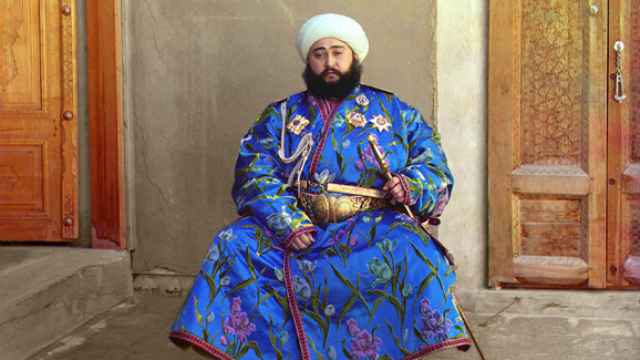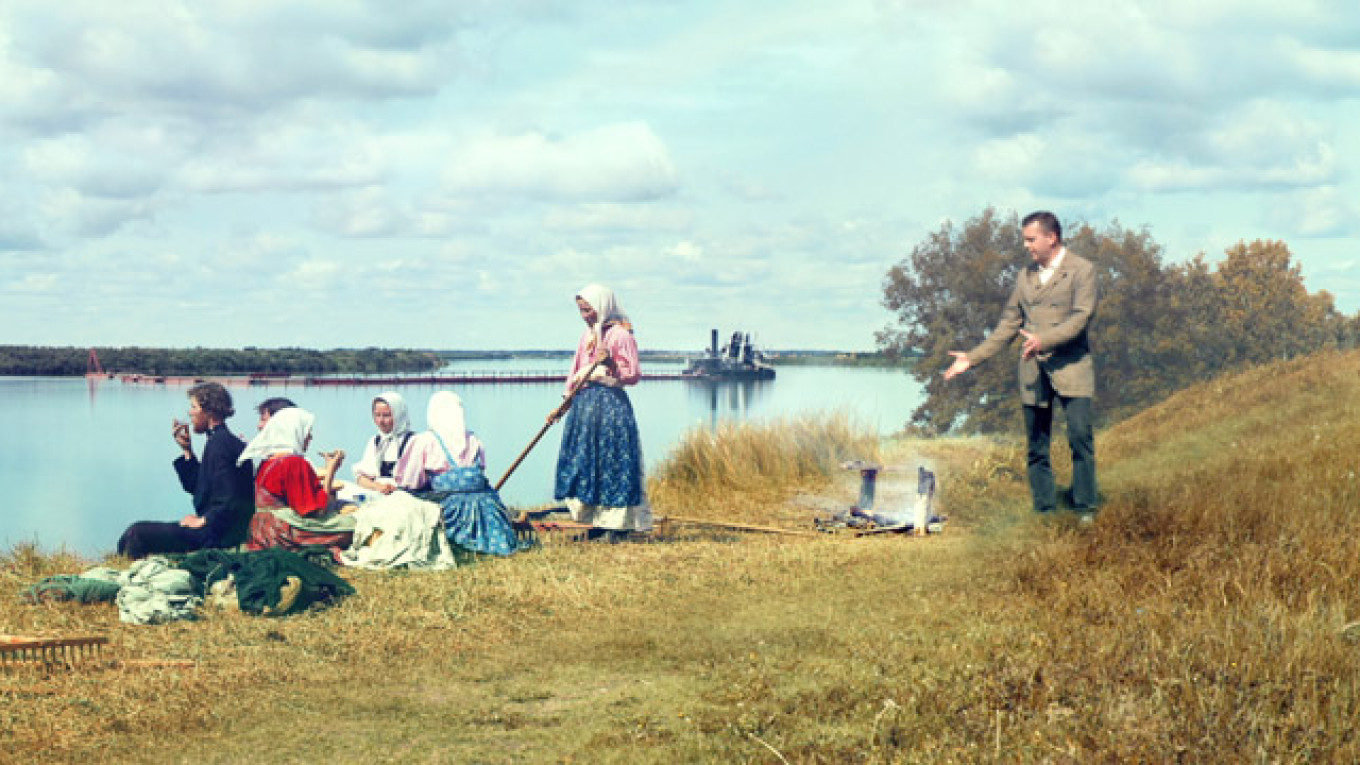By Igor Zinatulin for Calvert Journal
Leonid Parfyonov's latest film, "Russia in Bloom," is dedicated to Sergei Prokudin-Gorsky, a pioneer of color photography in pre-revolutionary Russia. In an interview with Calvert Journal, Parfyonov spoke about Russia then and now — and the future of independent journalism.
Q: Why did you decide to make a documentary about Prokudin-Gorsky?
A: Because his work is the last living testament of a civilization that no longer exists. It fascinates me both as a journalist and researcher. Pre-revolutionary Russia was the only country in the world that has been so thoroughly documented in color — a fact that became known quite recently when Prokudin-Gorsky's glass negatives were finally digitalized by the experts at the Library of Congress in Washington.
Q: In the film you depict Prokudin-Gorsky's Russia as a sort of mythical Atlantis inhabited by alien people who have nothing to do with modern Russians. Do you think this accurately reflects the historical reality?
A: My task was to give points of comparison so that people could make their own judgement. That's how I see my role in general as a reporter — someone who presents facts rather than interprets them. I visited 11 regions, I fought with mosquitoes in Karelia and languished in the heat in Bukhara, just to find those spots and show them in their present state. Mission accomplished, in that respect. However, it was hard not to be amazed by the daily discoveries that we kept making. We were filming in my native Vologda region in northern Russia and found out that, at the beginning of the 20th century, there was a professional theater in the town of Cherepovets, which then had a population of 13,000 people. Now there are more than 320,000 people in Cherepovets without any theaters because there is no longer any demand for them. We also learned that local hotels used to have telephones in each room while, in the Soviet Union, hardly anyone had a private phone until the 1970s. You can draw your own conclusions from that fact.
Q: Nevertheless, critics of the film have been quick to point out that it was your first documentary where your personal views have been expressed so clearly. Do you personally feel nostalgic for that era?
A: I'm not interested in the past. I care about today, which in Russia can be characterized by one word: fake. This film reveals how hollow and fake the attempts are to build a brand new country that is not based on any historical legacy. You have to be blind not to notice that the new Voyentorg building in Moscow, which replaced an art deco masterpiece from the early 20th century, is an eyesore. In St. Petersburg, Prokudin-Gorsky took a picture of a massive Lutheran cathedral on the Moika River, which in 1939 was transformed into a dreadful House of Culture. The main problem here is not architectural legacy; it's a whole way of life. St. Petersburg needed a giant Lutheran church because most of the bakeries and pharmacies at that time were owned by Germans. Laundries, for instance, were managed by the Chinese immigrants. That's why each picture has a strong internal message; it's not just about buildings and landscapes.

Prokudin-Gorsky traveled all over the empire. The emir of Bukhara, 1911.?
Q: Do you think that Prokudin-Gorsky's images should be returned to Russia to start a process of reconciliation between the two eras?
A: They would be better off online. Besides, the colors in his photographs look better and brighter on a screen. What's more, most of the glass plates that Prokudin-Gorsky left in the country before fleeing Russia have been lost. It would be safer to keep what is left in the Library of the Congress, which considers his pictures to be the jewel of their photography collection. These works should belong to the world.
Q: You mentioned in the film that there have been different "Russias" on pretty much the same territory in the course of one century. Would you agree that the present country bears more resemblance to the Soviet Union, with its ongoing resurrection of Soviet symbols, party hierarchy and ubiquitous censorship?
A: We are still living in the transient period that started after the Bolshevik Revolution. The whole Soviet system was transient and this experiment hasn't finished. The fact that Putin's Russia is very different to Yeltsin's, that Brezhnev was governing a very different country to that of Stalin's reign, means that there have never been any institutions, any social contracts that would support a stable political formation. All our leaders think that they are eternal, but that's utter nonsense. When these people go, their legacy will be annulled almost immediately.
Q: You actively participated in the Bolotnaya protests after the disputed parliamentary election in 2011 and also spoke publicly against censorship on Russian television. Is there any hope for freedom of the press in contemporary Russia?
A: I'm not working as a daily reporter anymore and I'm not covering political events, so I can't say that my participation in the protest was a crime against my professional responsibility as a journalist. That said, I do believe that journalists' mission is to report, not to climb the barricades. Russian journalism reflects wider problems in society. If it crawls out from under the rotten log where it has been kept for more than 10 years, then it will inevitably be twisted. Imagine that you've been gagged for hours, for years even — what would be your first reaction when the gag is removed? You'll start shouting and crying. So I don't blame journalists in both camps for not being meticulously objective. If the audience has no need for independent newspapers and TV stations, then it's not the journalists' problem. Unfortunately I think it would take decades for any country to build from scratch a media industry based on commonly accepted standards that can consistently present different opinions. It doesn't happen overnight.
This article first appeared in the online magazine The Calvert Journal, a guide to a creative Russia.
Contact the author at artsreporter@imedia.ru


